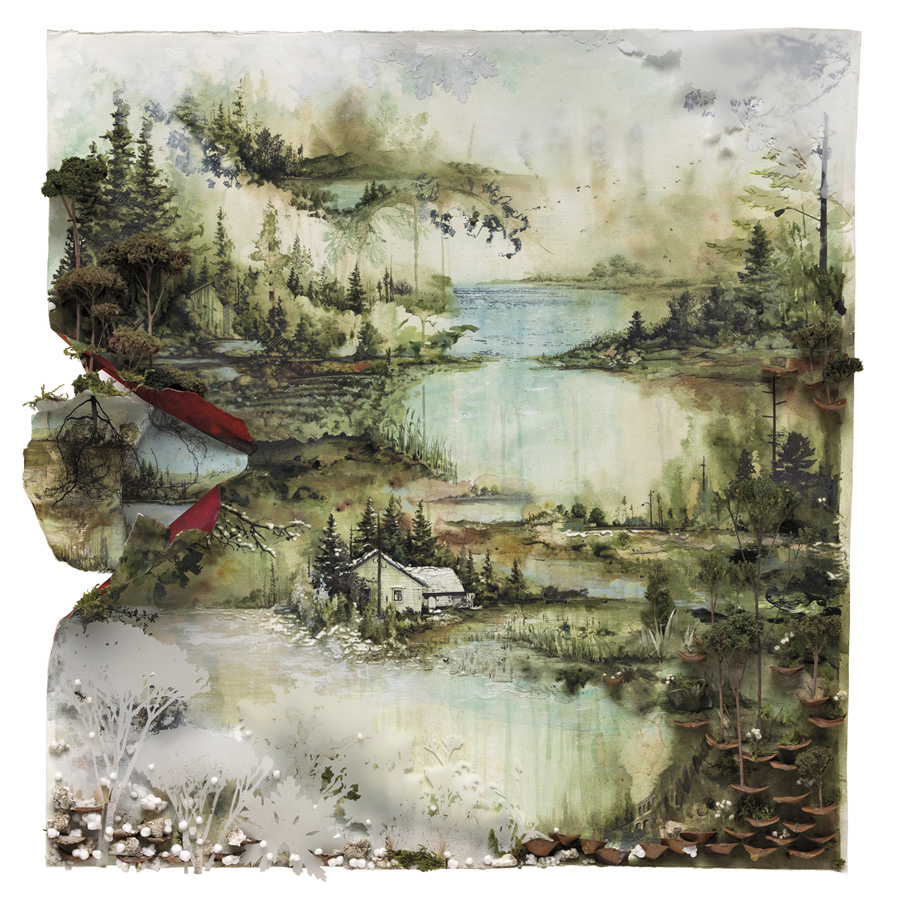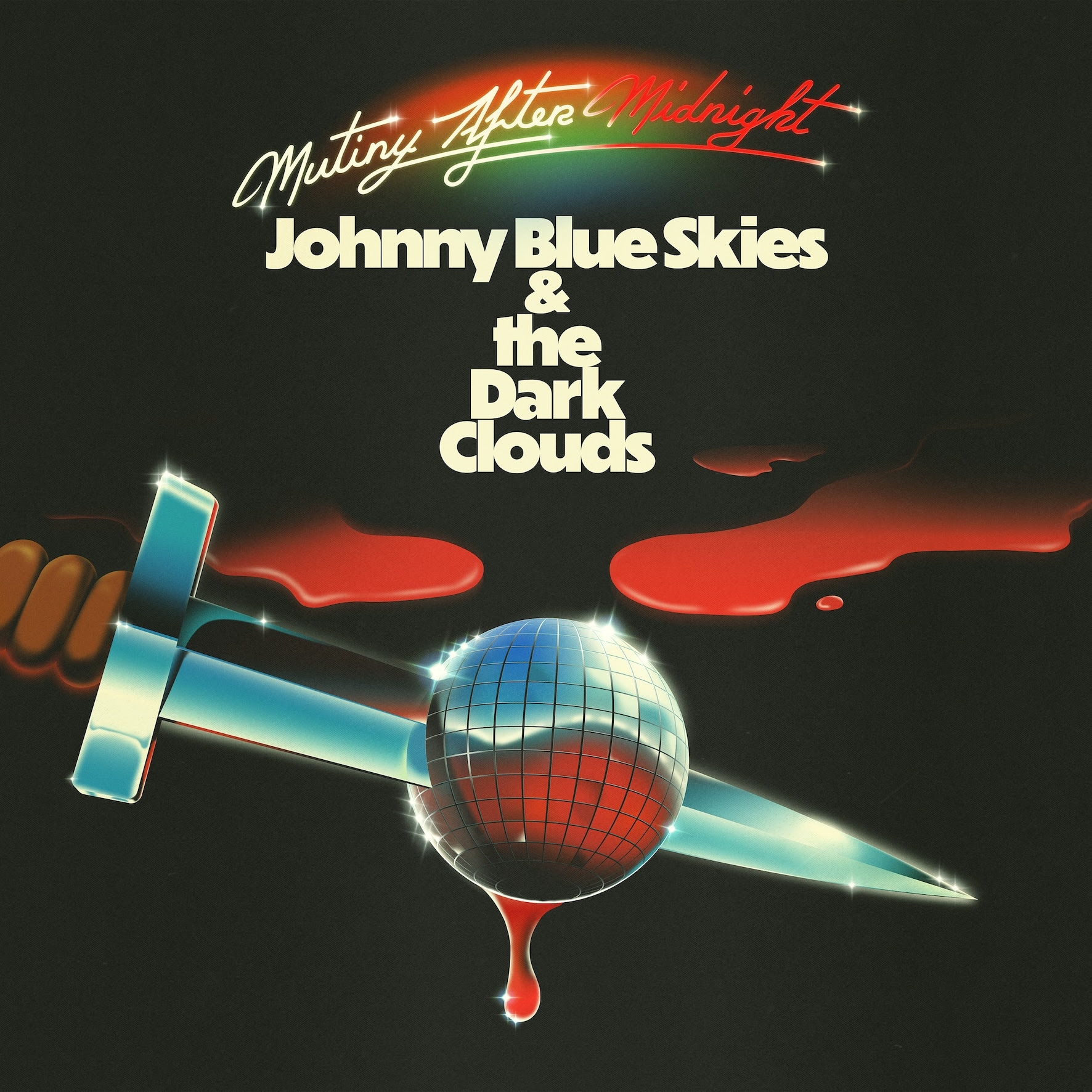- Jagjaguwar
- 2011
Justin Vernon was always a collaborator at heart. Though his debut album as Bon Iver, For Emma, Forever Ago, was famously recorded all by his lonesome while nursing heartbreak in a remote Wisconsin cabin, there was no chance that Bon Iver would remain such a solitary endeavor.
Before Bon Iver, Vernon had spent a lot of time as just one piece of a collaborative whole. His first band DeYarmond Edison consisted of himself and four other guys, most of whom he'd continue working with throughout the years. In between For Emma and his self-titled, Vernon found himself as a cog in the machine of many different projects, from Gayngs to Volcano Choir -- enough that we once made a family tree to track Vernon's many musical connections. So, in some ways, his sophomore album Bon Iver, Bon Iver -- which came out 10 years ago -- was the first real Bon Iver album, or at least the one that's closest to how Vernon would treat the project going forward: a collaborative effort with Vernon as its galaxy-brain center.
But Vernon has always had a complicated relationship with being at the center of a band. The year after his self-titled album came out, he said that Bon Iver were "winding it down." While his label was quick to clarify Vernon meant he was just pressing pause in between album cycles -- and indeed, although they took five years to release another album, Bon Iver did not end -- his justifications for stepping away reflect his hesitance at the idea of such a popular and singular project. "I look at it like a faucet. I have to turn it off and walk away from it because so much of how that music comes together is subconscious or discovering," he said at the time. "There’s so much attention on the band, it can be distracting at times. I really feel the need to walk away from it while I still care about it."
As corny as it is to say, Bon Iver albums do sound like they are unearthed and not consciously made. Thanks to the success of For Emma, Vernon built up his own studio in the form of April Base, just outside of his hometown of Eau Claire (Bon Iver was among the first albums made there), and his projects have increasingly felt like the product of documenting whatever happens in that studio, in whatever form that might take. His sophomore album is more fussy and overtly composed than either 22, A Million or i,i -- no doubt due to Vernon's anxiety at following up his momentous debut -- but you can already sense his slipstream song structures start to form, tracks that have no definitive beginning or end but seem to float along and crest at just the right time.
Bon Iver builds on For Emma and then some. There are plenty of moments where it's just Vernon and a lot of negative space, but those moments tend to build towards sweeping soft-rock conclusions, shepherded along by the coterie of Vernon acolytes whose names we'd come to know well over the next decade, including the first on-record Bon Iver appearances from Colin Stetson and Sean Carey. To go from the isolation and rawness of For Emma to the subtly grand stateliness of Bon Iver was a move that took some getting used to. Though predicated on his Blood Bank EP, his sophomore album represented a new direction for pop culture's suddenly famous bearded woodsmen. It presented Vernon not as someone who mistakenly struck gold with a stripped-back sound but as a thoughtful and considered studio wizard who, with the right tools at his disposal, could create magic.
Bon Iver is an album that feels like a lot of time went into it. It's gorgeous from start to finish, brittle and soft and uncomfortably intimate. It often sounds like it's barely there, impressive for an album that's made up of so many shifting layers and a lot of collaborators and instruments. It's an album of experimental folk songs -- explicitly not "freak-folk," which wasn't too far in the rear-view mirror when Bon Iver came out, but something more hushed and minimal, less willfully weird than painfully distant. These songs stretch out and take their time, ebbing and flowing like waves lapping at a shore. They're filled with little touches that add up to a lush tapestry of sounds: the militant drumbeat of "Perth," the ascendent piano twinkles on "Wash."; "Michicant," with its field recording of creaky playground equipment that so thoroughly evokes the childhood Vernon sings about when he quivers "I was unafraid, I was a boy, I was a tender age."
On the album, Vernon is barely intelligible, even more so than his debut; his words are oblique and more often than not muffled by his pinched-nerve falsetto. But what does stick out is some of his most elegant nonsense. Take the opening lines of "Minnesota, WI": "Armour let it through, borne the arboretic truth you kept posing/ Sat down in the suit, fixed on up it wasn't you by finished closing." It borders on bad MFA poetry, but Vernon's delivery keeps it from crossing over that edge; instead, it achieves the mysteriousness it's clearly setting out to impress on the listener. Vernon's lyrics root around in subconscious phrases -- the ones that break through are simple but powerful: "Never gonna break," "And at once I knew I was not magnificent," "I could see for miles, miles, miles." What Vernon sings about on the album are feelings of inadequacy, the stillness that comes with communing with nature, how hard it can be to hold on to that stillness.
Though the streaming industrial complex seems to have settled on the album being called Bon Iver, I've always preferred Vernon's early insistence that it be referred to as Bon Iver, Bon Iver: another stop, or maybe the final destination, in the travelogue of his existence. The album starts on the other side of the world with the stormy post-rocker "Perth," one of the loudest Bon Iver songs to date, and ends in the great beyond with "Beth/Rest," a blurry electric piano power ballad that stands as a landmark in indie rock's embrace of soft-rock schmaltz. Most of the song titles take their names from locations, dots on a map that make Vernon out to be a world-weary traveler, an amalgam of places both real ("Calgary," "Lisbon, OH") and imagined ("Minnesota, WI," "Hinnom, TX"). It reflects how these songs so often feel -- displaced and slipping, soft of like being in a car and watching the world speed by in a blur of trees and fields.
Bon Iver solidified Vernon's position as a folk-rock titan, even more so than his dalliances with Kanye West and his flirtations with the mainstream. His Grammy win for Best New Artist in the wake of his sophomore album might have elicited questions of "who is bonny bear," but it came after Bon Iver, the band, had already arrived as a dominant force in music. Vernon might have started out as one guy in the woods, but he successfully transitioned into just one piece of a magnificent whole.






